Against the depressing backdrop of plunging learning outcomes in primary, secondary and higher education, a silver lining is the multiplying number of young highly-qualified educationists investing fresh energy, management expertise and inherited knowledge in Indian education across the spectrum – Summiya Yasmeen
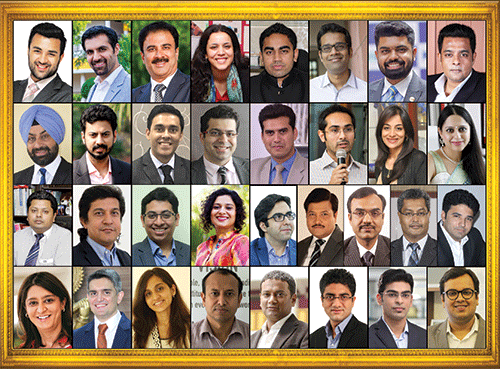 India’s “traitorous academics” — a description coined by US-based former financial journalist Martin Hutchinson — are well aware that the country’s education system is fast racing towards the abyss. The latest Annual Status of Education Report 2016 published by the Mumbai-based, globally-respected Pratham Education Foundation (estb.1994), which deployed over 25,000 volunteers (mainly college/university students) to test the learning outcomes of 562,305 children in the 3-16 year age group in 589 rural districts countrywide, records that the number of class V children who cannot read or comprehend class II texts, is rising as is the percentage of children in class VIII who cannot get simple division and subtraction sums right.
India’s “traitorous academics” — a description coined by US-based former financial journalist Martin Hutchinson — are well aware that the country’s education system is fast racing towards the abyss. The latest Annual Status of Education Report 2016 published by the Mumbai-based, globally-respected Pratham Education Foundation (estb.1994), which deployed over 25,000 volunteers (mainly college/university students) to test the learning outcomes of 562,305 children in the 3-16 year age group in 589 rural districts countrywide, records that the number of class V children who cannot read or comprehend class II texts, is rising as is the percentage of children in class VIII who cannot get simple division and subtraction sums right.
Likewise, real learning outcomes of children in secondary education are way below world standards as testified by the first and only batch of 15-year-olds who wrote PISA (Programme for International Student Assessment) in 2010 — a tri-annual test conducted by industrially developed OECD countries — and were ranked #73 out of 74. Even the National Achievement Survey 2015 conducted by the Delhi-based National Council of Educational Research & Training (NCERT), a subsidiary of the Union human resource development ministry, tested a representative sample of 277,416 class X students of 7,216 schools affiliated with 33 examination boards countrywide, indicates that real learning outcomes (measured by standardised testing) are below 50 percent in four subjects (English, maths, science and social sciences).
In higher education, the picture is equally bleak. Not even one of India’s 800 universities — some of them established over 150 years ago — is ranked among the Top 200 in the World University Rankings league tables published annually by the globally-respected, London-based higher education rating agencies Quacquarelli Symonds (QS) and Times Higher Education (THE). And although government spokespersons and middle-class citizens take great pride in the success of IIT and IIM graduates in Silicon Valley and in American industry, a NASSCOM-McKinsey World Institute study (2005) indicated that 70 percent of Indian engineering graduates are unqualified for employment in Western and multinational companies. Likewise, a more recent (2016) study conducted by the Delhi-based Aspiring Minds Assessment Pvt. Ltd reveals that only 21.64 percent of the estimated 1.5 million engineers certified by the country’s 3,470-plus engineering and technical colleges are qualified for employment in the IT (information technology) industry. Moreover, both studies indicate that over 80 percent of arts, commerce and science graduates of India’s 38,000 undergrad colleges are unfit for employment in multinational companies.
Despite this dismal scenario, education of the world’s largest child and youth population (550 million) is a low priority for the country’s politician-bureaucrat (neta-babu) brotherhood. Together, India’s spendthrift Central and state governments invest a mere 3.25-3.50 percent of GDP annually in education against the global annual average of 5 percent and 7-10 percent in industrially developed OECD countries. Unsurprisingly, productivity norms in 21st century India’s Central and state governments, agriculture and industry are among the lowest worldwide. Notwithstanding these grim on-the-ground realities which have trapped hundreds of millions of citizens in deep poverty, neither the country’s neta-babu brotherhood nor the intelligentsia are inclined to devise or debate new ways and means to raise resources for investment in human capital development (see Special Report p. 80).
Against this depressing backdrop, a silver lining is an increasing number of young, highly qualified and business-savvy edupreneurs (education entrepreneurs) and educationists who have ventured into early childhood, primary-secondary and even into relatively more capital intensive higher education by promoting and managing privately-funded institutions. Although a substantial number of new genre edupreneurs are the offspring of pioneer private sector edupreneurs who successfully negotiated the obstructive hurdles and roadblocks placed in their way by dog-in-the-manger politicians and bureaucrats claiming to prevent the “commercialisation of education”, they bring fresh energy, management expertise and inherited knowledge into India’s moribund education institutions across the spectrum.
And given that almost 40 percent of the country’s school-going children are in private schools, and a rising proportion are signing up with private colleges and universities across the country, institutional management reforms and introduction of new technologies and pedagogies by the emerging new generation of young edupreneurs/educationists could narrow and eventually bridge the yawning quality gap that separates India’s school and higher institutions of learning from their Western counterparts.
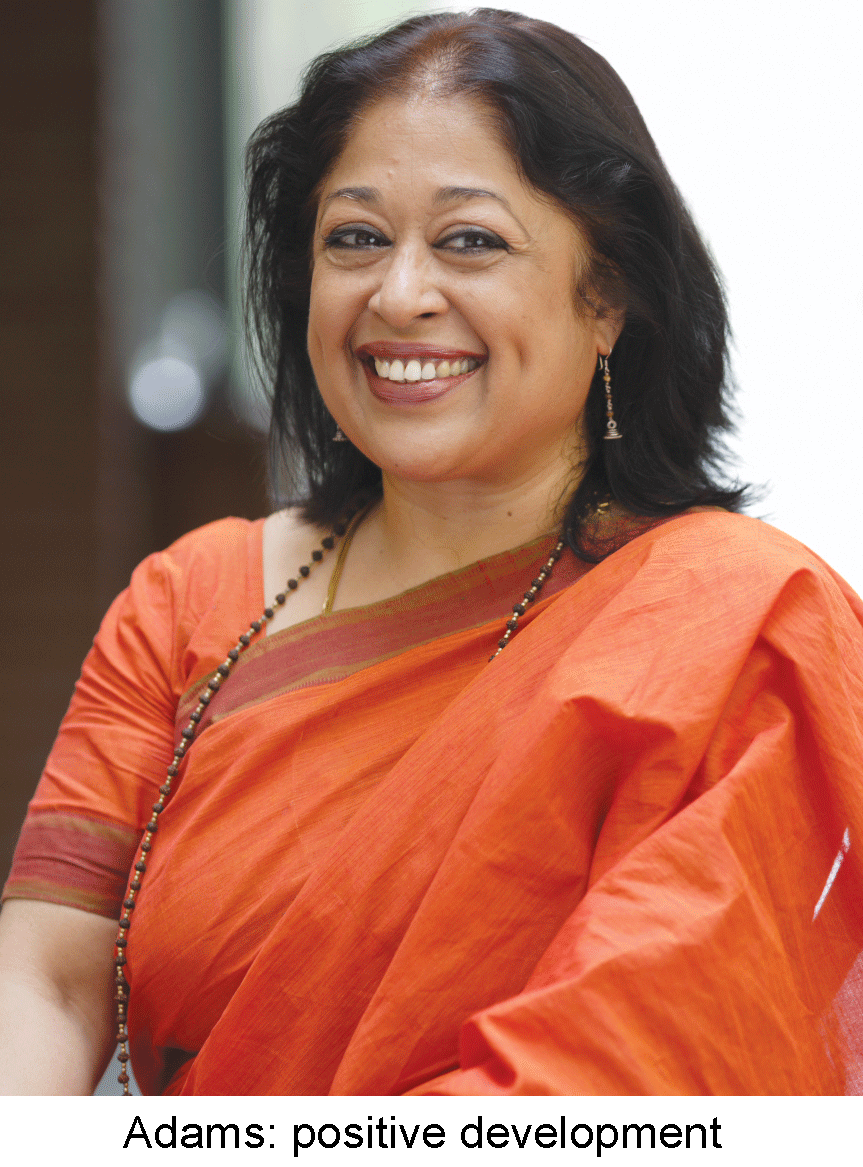 “A positive development in Indian education is that a large number of highly-qualified young people are entering the private sector across the spectrum. Although most of them are second-generation children of private education pioneers who bravely struggled against decades of complex and prohibitive licencing rules and regulations, idealistic young edupreneurs with no previous history in education are also promoting schools, universities and NGOs. This is good news because the number of interventionists, regulatory directives from the Central and state governments to private education institutions is increasing instead of decreasing and has exhausted the fire-fighting capabilities of the older generation of pioneer edupreneurs. Therefore, the energy and optimism of young idealists entering education offer some hope for the future of private schools which host almost half the total number of children in primary-secondary education,” says Abha Adams, an alumna of Delhi and Leeds universities and former director of the top-ranked Shri Ram schools in Delhi, and currently a highly-respected education consultant.
“A positive development in Indian education is that a large number of highly-qualified young people are entering the private sector across the spectrum. Although most of them are second-generation children of private education pioneers who bravely struggled against decades of complex and prohibitive licencing rules and regulations, idealistic young edupreneurs with no previous history in education are also promoting schools, universities and NGOs. This is good news because the number of interventionists, regulatory directives from the Central and state governments to private education institutions is increasing instead of decreasing and has exhausted the fire-fighting capabilities of the older generation of pioneer edupreneurs. Therefore, the energy and optimism of young idealists entering education offer some hope for the future of private schools which host almost half the total number of children in primary-secondary education,” says Abha Adams, an alumna of Delhi and Leeds universities and former director of the top-ranked Shri Ram schools in Delhi, and currently a highly-respected education consultant.
In the pages following we present brief profiles and plans of 33 selected next-gen edupreneurs/educationists who have accepted the challenge of promoting and managing new globally benchmarked schools (and higher ed institutions) to raise rock-bottom learning outcomes in Indian education to global standards.
Ryan Pinto
Ryan International Group of Institutions
 An alumnus of Warwick and Aston universities (UK) and the Cass Business School, London, Ryan Pinto is CEO of the Ryan International Group of Institutions (RIGI) comprising 135 K-12 schools with 270,000 students countrywide. Promoted in 1976 by Dr. A.F. Pinto and Grace Pinto, RIGI has flowered into India’s largest chain of wholly-owned proprietory schools. In 2010, Ryan was appointed CEO with the brief to lead RIGI’s entry into tier II and III cities and foreign markets.
An alumnus of Warwick and Aston universities (UK) and the Cass Business School, London, Ryan Pinto is CEO of the Ryan International Group of Institutions (RIGI) comprising 135 K-12 schools with 270,000 students countrywide. Promoted in 1976 by Dr. A.F. Pinto and Grace Pinto, RIGI has flowered into India’s largest chain of wholly-owned proprietory schools. In 2010, Ryan was appointed CEO with the brief to lead RIGI’s entry into tier II and III cities and foreign markets.
Career in education. A natural choice, it’s in my DNA. I’m passionate about education and privileged to work in this nation-building sector.
Prime objectives of RIGI. Delivering excellence in education to brighten the future prospects of our children, providing access to quality education at affordable prices and nurturing future global leaders invested with values, morals and ethics.
Major initiatives. We introduced international curriculums (IB & IGCSE) in Ryan schools, integrated new digital technologies in the teaching-learning process, expanded RIGI’s footprint overseas, introduced a wide range of enrichment programmes and successfully orchestrated India’s largest food donation programme. We mobilised and distributed over 700,000 kg of food among 200 NGOs and provided meals to over 10,000 underprivileged children.
Optimistic or pessimistic about Indian education? Very optimistic. When I meet our educators and students, I am encouraged by their enthusiasm and creative ideas. However, the challenge is immense in terms of the huge number of children who need quality education. We need to leverage technology and explore non-linear options to ensure best, affordable education to all children.
Future plans. Our immediate plan is to expand our schools’ network in tier II and III cities. We are also strengthening our organisational structure to stay ahead of the curve and consolidate our leadership position in K-12 education. Innovations in curriculum/pedagogy to equip our children with 21st century skills are a continuous process.
Leadership style. A mix of strategic and transformational. I value the inputs of my team members with all of us focused on achieving the long-term goals of RIGI.
Unwinding/de-stressing. Spending time with young children in our schools is invigorating. I fly on average 200,000 miles per year. That’s when I can catch up on movies.
Jesus Lall
Universal Education, Mumbai
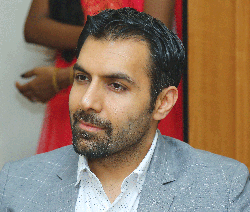 Mumbai-based Jesus Lall is the widely-respected promoter of Universal Education (UE, estb. 2003). Within a short span of 14 years, UE has multiplied into 52 education institutions with an aggregate enrolment of 35,000 students across 25 campuses countrywide.
Mumbai-based Jesus Lall is the widely-respected promoter of Universal Education (UE, estb. 2003). Within a short span of 14 years, UE has multiplied into 52 education institutions with an aggregate enrolment of 35,000 students across 25 campuses countrywide.
Why a career in education? I always wanted a vocation with great social impact. Although I started with a short stint in the technology space, I soon found my calling in education which is crucial to shape generation next. The landmark TMA Pai Case judgement of 2002 liberated the education sector in many ways and the Supreme Court’s verdict in the case made my commitment complete.
The UE mission. To deliver high-quality education to achieve the best possible student learning outcomes. Our goal is to invest the values of compassion, courage and fortitude in our students. We want to produce critical thinkers, passionate artists, cerebral scientists, exemplary athletes, transformational leaders and illustrious scholars.
Major initiatives. I have built this social enterprise brick-by-brick, and over the past 14 years have designed robust processes and a happy workplace culture for our teachers. Today, UE employs 3,000 people and has impacted over 200,000 students. I’ve done this while professionalising without commercialising, energising without embattling and standardising without mechanising.
Optimistic or pessimistic about Indian education? Very optimistic. Of course, there are challenges. But like Winston Churchill said: “The optimist sees opportunity in every danger while the pessimist sees danger in every opportunity.” I believe there’s opportunity for profound societal change through quality education.
Future plans. Numerically, we intend to touch an annual full-time student base of 100,000 students by 2025. We want to be of service across the spectrum from KG-Ph D. Moreover, we want to expand our social impact by designing syllabus/curriculum programmes similar to CIE/IBO models.
Leadership style. Dynamic and collaborative. I believe mutual respect and trust form the bedrock of good workplace relationships. I encourage my team to take ownership with accountability.
Unwinding/de-stressing. A happy and rooted family is my greatest source of joy. And by family, I mean the larger Universal Education family.
Manas Mehrotra
Greenwood High, Bangalore
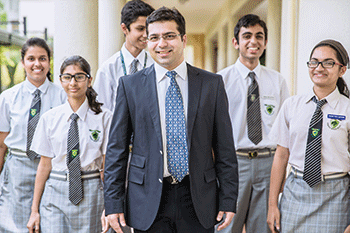 A chartered accountant with an MBA from Babson College, USA, Manas Mehrotra is trustee of the Greenwood High group of four preschools and three K-12 schools in Bangalore, with 5,000 students and 1,100 employees on their muster rolls. Formerly with the well-known global consultancy Ernst & Young, Mehrotra has introduced best business management practices to quickly scale up the Greenwood High group’s operations in Bangalore.
A chartered accountant with an MBA from Babson College, USA, Manas Mehrotra is trustee of the Greenwood High group of four preschools and three K-12 schools in Bangalore, with 5,000 students and 1,100 employees on their muster rolls. Formerly with the well-known global consultancy Ernst & Young, Mehrotra has introduced best business management practices to quickly scale up the Greenwood High group’s operations in Bangalore.
Why the switch to education? I am passionate about education. We need leaders who can take on the challenge of transforming the country’s obsolescing education system by incepting modern pedagogies and systems.
Greenwood High mission. To create learning environments without fear, encourage learning-by-doing and develop holistic education pedagogies.
Major initiatives engineered. We are proud that in a short span of 13 years, the group has promoted seven campuses in Bangalore. We are the first school in India to receive ISO certification for health and safety, and have invested heavily in teacher training and new technologies to improve students’ learning outcomes.
Optimistic/pessimistic about Indian education. The room for growth in Indian education is monumental and that doesn’t leave any space for pessimism. But unfortunately, there’s pervasive fear of excessive government interference derailing the education system.
Future plans. We plan to launch a new campus every year, and will be expanding our operations to Mumbai and Pune in the near future.
Leadership style. I’m a born optimist and that has a direct impact on my leadership style. I aspire to become an inspirational leader who walks alongside his team and shows them the path. My people draw strength from me and vice versa.
Leisure activities. Running, tennis, cricket, squash and swimming.
Sapna Chauhan
Amiown Preschools, Delhi NCR
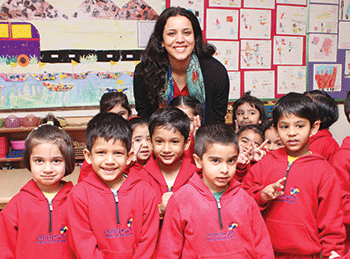 An alumna of Wharton Business School, USA, Sapna Chauhan is founder-chairperson of five Amiown preschools (estb. 2005) in Delhi NCR, and the Amity Centre for Educational Research and Training.
An alumna of Wharton Business School, USA, Sapna Chauhan is founder-chairperson of five Amiown preschools (estb. 2005) in Delhi NCR, and the Amity Centre for Educational Research and Training.
Career in education. Growing up in a family of educators, I was surrounded and inspired by people whose mission is human capital development. The profession chose me, and it was a blessing.
The prime objectives of Amiown pre-primaries. In Amiown schools, “we nurture our children to be happy, to be able to express themselves freely, to love themselves and others around them, to have a passion for life, to be the best they possibly can”.
Major initiatives. I believe we have set new benchmarks in early childhood care and education in India through a number of initiatives. Among them: offering globally benchmarked teacher training programmes for preschool educators, sensitising teachers and parents to the needs of youngest learners, researching best practices from around the world and incorporating them in our curriculum, and designing stimulating and innovative learning environments.
Optimistic/pessimistic about Indian education? Fluctuating sentiments. But I believe it’s better to be optimistic about everything in life.
Future plans. Growth, growth and growth. We want to expand across India and around the world.
Leadership style. My leadership style has evolved with the changing needs of the organisation. According to me, all good leaders need to perform a balancing act in terms of showing others the big picture while also staying connected to the parts that make the big picture.
Unwinding / de-stressing. Spending time with Amiwon children is the best stressbuster. they are incredibly affectionate, loving and joyful – I feel happiest in their company.
Sanjay Ghodawat
Sanjay Ghodawat Group, Kolhapur
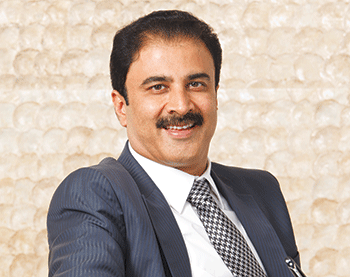 Sanjay Ghodawat is promoter-chairman of the Sanjay Ghodawat Group of Institutions (SGI, estb.2009) and Sanjay Ghodawat group of industries with diverse interests in food, real estate and aviation. Spread over 150 acres in Kolhapur, the SGI integrated campus hosts an international school, engineering and management colleges, and an IIT/Medical/Olympiad training academy with an aggregate enrolment of 11,000 students.
Sanjay Ghodawat is promoter-chairman of the Sanjay Ghodawat Group of Institutions (SGI, estb.2009) and Sanjay Ghodawat group of industries with diverse interests in food, real estate and aviation. Spread over 150 acres in Kolhapur, the SGI integrated campus hosts an international school, engineering and management colleges, and an IIT/Medical/Olympiad training academy with an aggregate enrolment of 11,000 students.
Choosing a career in education. It was my mother Sushila Danchand Ghodawat’s wish to enable students of the Kolhapur-Satara region to access high quality education. When I achieved success in business, I decided to give back to society by promoting globally-benchmarked education institutes.
Prime objectives of the Sanjay Ghodawat Group. To shape leaders for tomorrow who will lead the nation at national and international levels.
Major initiatives. Our greatest success is that starting from a few hundred students eight years ago, we now have 11,000. We have planted more than 1 lakh trees on the Kolhapur-Sangli highway and helped drought-affected farmers in the region.
Optimistic or pessimistic about Indian education? I wouldn’t have started a chain of education institutions if I wasn’t an optimist. But India has a lot of catching up to do. It’s shameful that no Indian university is ranked in the QS or THE Top 200 World University Rankings.
Future plans. We will be applying for private university status for our higher education institutions.
Leadership style. Democratic, but adjusted for Indian conditions. I believe in situational leadership, as defined by American author and management expert Ken Blanchard.
Leisure activities. Exercising daily and spending time with family.
Dr Balasubramanian V.
NES-SVB Institutions, Mumbai
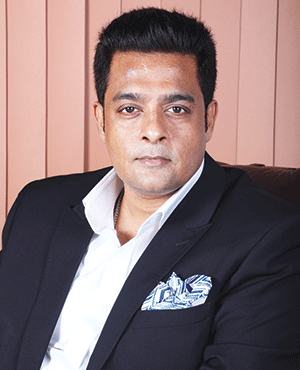 An alumnus of the University of Wales, UK with a Ph D in business administration awarded by Walden University, USA, Dr. Balasubramanian V. is director of the Mumbai-based National Education Society (NES) and Saraswathi Vidya Bhavan (SVB) group of 62 educational institutions with an aggregate enrolment of 47,300 students and 1,820 teachers. During the past decade, he has spearheaded the group’s expansion and promoted the highly-fancied NES International School, Mulund, Mumbai.
An alumnus of the University of Wales, UK with a Ph D in business administration awarded by Walden University, USA, Dr. Balasubramanian V. is director of the Mumbai-based National Education Society (NES) and Saraswathi Vidya Bhavan (SVB) group of 62 educational institutions with an aggregate enrolment of 47,300 students and 1,820 teachers. During the past decade, he has spearheaded the group’s expansion and promoted the highly-fancied NES International School, Mulund, Mumbai.
Why a career in education? My father Dr R. Varadarajan is a pioneer who painstakingly developed the NES/SVB educational hub in the northeast suburbs of Mumbai. Therefore, it was a natural fit.
Prime objectives of the NES-SVB Group. To redefine education and prepare our children for tomorrow’s world. We are committed to providing the best education to students from all strata of society.
Major initiatives. I am motivating our teachers to switch from rote learning to experiential learning pedagogies. I am proud to state that NES High School, Bhandup is the only school in Mumbai-Thane to be selected by the Central government for setting up an Atal Tinkering Lab. We have also set up a one-of-a-kind space centre in the NES International School, Mumbai. Other major initiatives include investing in new digital technologies to achieve greater administrative efficiency and generating awareness about environmental sustainability in all our 62 institutions.
Optimistic or pessimistic about Indian education? Very optimistic because of several positive trends. International K-12 schools in India have multiplied ten-fold in the past decade and 25 percent of the total number of schools in the country are private. The government is also introducing various measures to improve literacy in India.
Future plans. My dream is to put the NES & SVB Group on the global education map through introduction of thoroughly contemporary education programmes in India.
Leadership style. I follow the transformational style of leadership — very open and broadminded — to provide a strategic vision for the future of our organisation.
Unwind/de-stress. Yoga, reading books, music, movies and travel.
Sujay Jairaj
Jamnabai Narsee Group, Mumbai
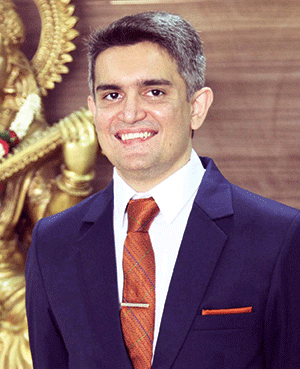 Sujay Jairaj is a trustee of the Narsee Monjee Educational Trust which has promoted the Jamnabai Narsee School, Mumbai (JNS, estb. 1971), Jamnabai Narsee School, Gift City, Gandhinagar, Gujarat (2015), Jamnabai Narsee International (2015) and Chatrabhuj Narsee schools, Mumbai (2016) with an enrolment of 10,000 students. An alumnus of University of Strathclyde (UK), Jairaj is also vice president of Golden Chemicals Pvt. Ltd and managing director of MAX Edusol Pvt. Ld.
Sujay Jairaj is a trustee of the Narsee Monjee Educational Trust which has promoted the Jamnabai Narsee School, Mumbai (JNS, estb. 1971), Jamnabai Narsee School, Gift City, Gandhinagar, Gujarat (2015), Jamnabai Narsee International (2015) and Chatrabhuj Narsee schools, Mumbai (2016) with an enrolment of 10,000 students. An alumnus of University of Strathclyde (UK), Jairaj is also vice president of Golden Chemicals Pvt. Ltd and managing director of MAX Edusol Pvt. Ld.
Choosing a career in education. My business is with chemicals but my passion is education. The Narsee Monjee family has been associated with education for over five decades and I have been involved with JNS since I was 21. I find the creativity and innovation involved in organising and managing institutions of learning exciting and stimulating. It has given me a chance to contribute to the good of children, society and the nation in my own little way.
Prime objectives of JNS Group. The Narsee Monjee Educational Trust was established in the late 1960s with the motto Jnanat Sarvam Pradipyate — ‘Illuminate all with Knowledge’. That remains our objective. We believe through education of children and youth, we are contributing towards national development.
Major initiatives. I’ve focused on developing infrastructure and technology at our flagship Jamnabai Narsee School; promoted three new JNS campuses and put together great teams for academics, sports, co-curricular and values education.
Optimistic about Indian education? With digital technology, quality education can reach children and youth beyond the cities. The Union government needs to prepare and implement a strategic policy for education. Excessive freedom or interference can lead to a mess. A well-balanced approach is required to upgrade Indian education.
Future plans. My immediate plan is to focus on consolidating our new projects. Indian education is developing and changing at a very fast pace. Our goal is to set new benchmarks in infrastructure, technology, curriculum delivery, co-curricular and sports education.
Leadership style. To develop advanced strategies and build teams.
Leisure pursuits. Badminton, air pistol shooting, skiing and reading.
Mansoor Ali Khan
DPS, Bangalore & Mysore
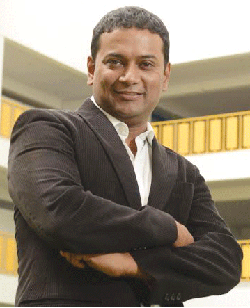 Mansoor Ali Khan is co-founder/director of the Delhi Public School (DPS), Bangalore and Mysore. A business management postgrad of Bangalore University, Khan co-founded the first DPS, Bangalore South in 2001 followed by DPS, Bangalore North (2002), DPS, Bangalore East (2007), DPS, Mysore (2012) and DPS, Electronic City and School of India, Bangalore (2014). Currently the DPS, Bangalore/Mysore schools host an aggregate 23,000 students.
Mansoor Ali Khan is co-founder/director of the Delhi Public School (DPS), Bangalore and Mysore. A business management postgrad of Bangalore University, Khan co-founded the first DPS, Bangalore South in 2001 followed by DPS, Bangalore North (2002), DPS, Bangalore East (2007), DPS, Mysore (2012) and DPS, Electronic City and School of India, Bangalore (2014). Currently the DPS, Bangalore/Mysore schools host an aggregate 23,000 students.
Choosing a career in education. Born into a family with deep roots in politics, I have always believed that education is the foundation block of national development and economic prosperity. Right from my childhood I have witnessed my father, Rahman Khan, MP, nurture and manage the Al-Ameen Group which has grown into 50 education institutions with over 70,000 students in Bangalore.
Prime objectives of DPS, Bangalore schools. To enable children to realise their full potential to become responsible and accountable citizens. We believe in creating problem-solvers who think out of the box. That is why we focus on student-centric learning in our schools.
Recent initiatives. We’ve initiated a Professional Development Plan for all academic and non-academic staff to continuously learn and unlearn. We have also introduced transformational instructional practices through digital learning and integrated ‘global education’ into the curriculums of our schools to enable children to adapt to workplaces and cultures around the world.
Optimistic/pessimistic about Indian education. Optimistic. I don’t believe in being overly-critical or defensive about our education system. However, we have a long way to go — there is huge wastage of resources and the inherent potential of students isn’t being maximally realised.
Future plans. Our newest DPS, Bangalore West will admit its first batch of students in 2018-19. Another School of India (SOI) will be inaugurated in Mandya (Karnataka) in June this year. My ambition is to promote a chain of SOI schools countrywide.
Leisure pursuits. Spending quality time with family, watching and playing cricket, listening to music and travelling.
Shreevats Jaipuria
Seth MR Jaipuria Schools, Lucknow
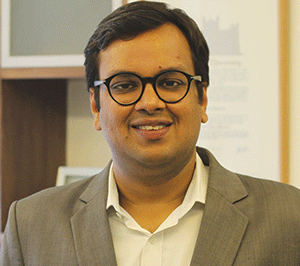 Shreevats Jaipuria is vice chairman of the Lucknow-based Seth M.R. Jaipuria schools and Jaipuria Institute of Management (JIM). An alumnus of the Stern School of Business, New York University, Jaipuria has masterminded the expansion of SMRJ schools from one to 13 institutions in a short span of three years and successfully developed JIM into one of India’s Top 10 B-schools with campuses in Lucknow, Noida, Jaipur and Indore. He is also an executive director of Ginni International Ltd, a textiles manufacturing company (annual revenue: Rs.500 crore).
Shreevats Jaipuria is vice chairman of the Lucknow-based Seth M.R. Jaipuria schools and Jaipuria Institute of Management (JIM). An alumnus of the Stern School of Business, New York University, Jaipuria has masterminded the expansion of SMRJ schools from one to 13 institutions in a short span of three years and successfully developed JIM into one of India’s Top 10 B-schools with campuses in Lucknow, Noida, Jaipur and Indore. He is also an executive director of Ginni International Ltd, a textiles manufacturing company (annual revenue: Rs.500 crore).
Career in education: It’s a natural fit. The Jaipuria family has been contributing to Indian education since 1945, when we established the Jaipuria College in Calcutta which was inaugurated by Pandit Jawaharlal Nehru. Since then, the Jaipuria name has been synonymous with quality education. Therefore, I welcomed the invitation of family elders to take this legacy forward into the next phase of expansion.
SMRJ goals & objectives. To reach out and provide nationally benchmarked education in under-served towns and cities countrywide. We believe this is possible by investing in proper infrastructure, teacher training and curriculum development.
Recent initiatives of SMRJ group. The average school teacher in India is overburdened with teaching and administrative responsibilities. She doesn’t have time to invest in learning new pedagogies. Over the past three-four years, we have invested heavily in developing over 200,000-plus pages of lesson plans and modern teaching materials. Through this, we have empowered our teachers to use best internationally benchmarked pedagogies in their classrooms. Close collaboration between our R&D team and teachers has allowed us to expand without compromising quality.
Optimistic about the future of Indian education? Yes. Change will be forced by students and parents, who are becoming increasingly aware of the importance of investing in quality education. Competition between education institutions will ensure that the best in quality and value will succeed.
Future plans. We plan to have 50 SMRJ schools with over 50,000 students up and running in the next five years.
Leadership style. Identifying performers and achievers and empowering them. Over time, our organisation has established an open environment which encourages transparency and team work.
Leisure pursuits. Travelling in India and abroad.
Dr. Chandrashekar D.P
JGI Schools, Hyderabad
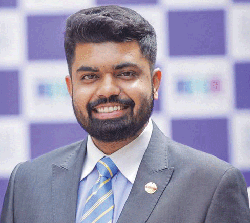 Dr. Chandrashekar D.P is the Hyderabad-based CEO of JGI (Jain Group of Institutions) Schools which include 35 K-12 and 20 Jain Toddler preschools countrywide. An alumnus of IIM, Lucknow with a Ph D in education from the People’s University of Milan, he began his career as a facilities executive with JGI in 2003, and was appointed CEO of JGI Schools in 2016. Currently, the group comprises 87 preschool-to-university institutions with an enrolment of 51,600 students and 6,450 employees in 64 campuses countrywide.
Dr. Chandrashekar D.P is the Hyderabad-based CEO of JGI (Jain Group of Institutions) Schools which include 35 K-12 and 20 Jain Toddler preschools countrywide. An alumnus of IIM, Lucknow with a Ph D in education from the People’s University of Milan, he began his career as a facilities executive with JGI in 2003, and was appointed CEO of JGI Schools in 2016. Currently, the group comprises 87 preschool-to-university institutions with an enrolment of 51,600 students and 6,450 employees in 64 campuses countrywide.
Career choice. I got into education by chance, not choice. As a business management graduate, I was all set to enter the corporate sector when Dr. Roychand Chenraj, chairman of JGI, invited me to come aboard. Since then, there’s been no looking back or regrets.
Major objectives of JGI. To deliver best education from the elementary to tertiary stage, to accelerate national development by nurturing new generation social entrepreneurs, and creating a globally networked community of leaders, technocrats, scientists, professionals, sportspersons and artists.
New initiatives. We recently implemented our PITCH philosophy (P — personal touch, I — involvement of parents, T — traditions and values, C — child centric curriculum & H — holistic development) in all JGI schools. We’ve also launched the Jain Academy for Early Childhood Education to train pre-primary teachers and rolled out our Jain Toddler franchisee programme.
Optimistic or pessimistic about Indian education? Very optimistic and raring to explore the huge opportunities and challenges of Indian education.
Future plans. To promote 108 K-12 schools across India and launch all of them on one day.
Leadership style. I am a ‘right way’ leader who believes the purpose of leading is not to accumulate merit but to attain wisdom.
Leisure activities. Reading, cycling and instrumental music.
Manit Jain
Heritage Group of Schools, Delhi NCR
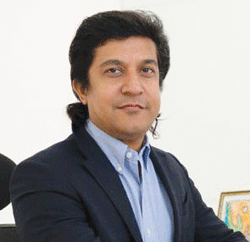 An alumnus of the Harvard Graduate School of Education, Manit Jain is co-founder and director of the three Heritage schools in Delhi and Gurgaon with an aggregate enrollment of 6,000 students. Jain is also co-founder of ‘I am a Teacher’ — an initiative to develop practice-based teacher education programmes in collaboration with the Boston Teacher Residency, USA.
An alumnus of the Harvard Graduate School of Education, Manit Jain is co-founder and director of the three Heritage schools in Delhi and Gurgaon with an aggregate enrollment of 6,000 students. Jain is also co-founder of ‘I am a Teacher’ — an initiative to develop practice-based teacher education programmes in collaboration with the Boston Teacher Residency, USA.
Why a career in education? Disillusioned by the lack of relevance in my own education, I wanted to create more humane learning environments for children. With obsessive focus on rote, content and examinations, most children in the country don’t experience the joy of learning. My mission is to ensure that children happily acquire the skills and values required to become learners for life.
Prime objective of the Heritage schools. To create an experiential learning model that works on scale and within the constraints of the mainstream education system. And to nurture individuals who will work towards building a just and equitable society.
Major initiatives. All our initiatives are focused on strengthening relationships, relevance and rigour. In the Heritage schools, we have created psychologically safe spaces for children and adults to freely express themselves, and designed learning environments where teachers set goals to which children can relate. Through projects-based learning, we stimulate our children to think critically, analyse, research, and work in teams.
Optimistic or pessimistic about Indian education? Looking at most learning assessment reports and the limited spending on education, I am not optimistic. While the world is at the cusp of the fourth industrial revolution we are still educating children for the second revolution.
Future plans. We are continuously developing our curriculums to meet the needs of the fourth industrial revolution. Moreover, strengthening our teacher education programme is an ongoing process. We also want to share our experiential learning model with government schools.
Leadership style. Empowering, collaborative and democratic. I believe in maximum autonomy and minimum use of authority.
Unwinding/de-stressing. Spending time with my kids, reading, listening to music and playing badminton.
Kunal Dalal
JBCN Education Group, Mumbai
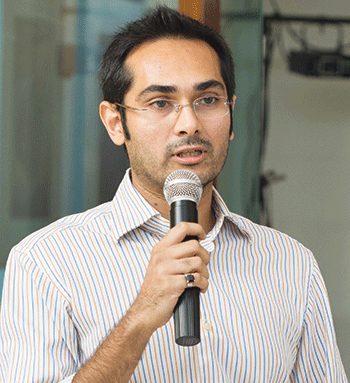 Kunal Dalal is managing director of the Mumbai-based JBCN Education Group which has promoted three international K-12 schools, six preschools and a B-school with an aggregate enrolment of 3,600 students. An alumnus of the blue-chip Carnegie Mellon University, USA, Dalal also acquired valuable institutional management and development experience at Rabo Bank and Yes Bank, prior to forsaking the corporate world to take charge of JBCN Education in 2005.
Kunal Dalal is managing director of the Mumbai-based JBCN Education Group which has promoted three international K-12 schools, six preschools and a B-school with an aggregate enrolment of 3,600 students. An alumnus of the blue-chip Carnegie Mellon University, USA, Dalal also acquired valuable institutional management and development experience at Rabo Bank and Yes Bank, prior to forsaking the corporate world to take charge of JBCN Education in 2005.
Why the career switch to education? My mother Pinky Dalal pioneered the concept of preschool education in Mumbai way back in 1984. Her experience meshed with my desire to contribute to society and made education the perfect fit for me.
JBCN’s goal. Our mission is to create tomorrow’s leaders through ‘eduCreative’ experiences. Our institutional objective is to create lifelong learners with strong values and commitment to national development and progress.
Major initiatives. I was able to persuade business leaders Rakesh Jhunjhunwala, president of RARE Enterprises, Vimal Shah, managing director of Hubtown and Rana Kapoor, CEO of Yes Bank, to partner with us to scale the operations of JBCN Education. Our unique eduCreative programme arouses the curiosity and motivation of children through excellent academic, sports, performing and creative arts and life skills education.
Optimistic/pessimistic about Indian education? Optimistic for a variety of reasons. Among them: government is focused on providing skills-based training to make youth job-ready; there is a societal mindset change with parents in all strata of society having accepted that education is the best investment, and a growing number of NGOs, professionals and corporates are becoming involved in education provision at the grassroots level in rural India.
Future plans. I want JBCN to move beyond K-12 into undergraduate and postgraduate education. We are exploring collaboration proposals with international colleges to offer specialised courses as well as world-class sports, theatre and creative education. And a strong teacher training programme to ensure 21st-century learners.
Leadership style. I believe in leading by example. Therefore, I ensure that I am displaying the qualities I want my team, my schools and our students to develop.
Leisure pursuits. I am an active sportsperson and play tennis and cricket. I also love to travel in India and abroad.
Anirudh Gupta
DCM Group of Schools, Punjab
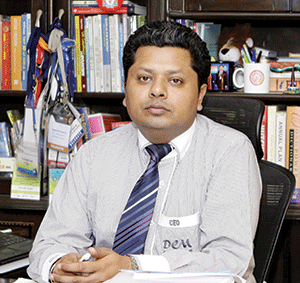 An engineering graduate of Punjabi University, Patiala, Anirudh Gupta is CEO of the DCM Group of education institutions (estb.1946) which comprise seven K-12 schools with an aggregate enrolment of 15,000 students in Punjab and Haryana.
An engineering graduate of Punjabi University, Patiala, Anirudh Gupta is CEO of the DCM Group of education institutions (estb.1946) which comprise seven K-12 schools with an aggregate enrolment of 15,000 students in Punjab and Haryana.
Why a career in education? I was fortunate to be born into a family of academics, lawyers, bureaucrats and doctors. Nevertheless I chose education because I believe in creating a better tomorrow for the 480 million children of India.
DCM schools mission. In sync with our motto “Where excellence begins”, our prime objective is to develop well-informed individuals by providing them high quality education. We want to prepare young people for the rapidly advancing information age while keeping them rooted in Indian culture and traditions.
Major recent initiatives. After taking charge of DCM schools, we have taken many initiatives to modernise and internationalise our schools. They include international exchange programmes, foreign summer school projects, introducing study of foreign languages, launching community outreach programmes, rain water harvesting, career counseling programmes, and establishing innovation cells.
Optimistic/pessimistic about Indian education? Optimistic. From focusing on improving academic outcomes in schools, revamping higher education to establishing a national testing agency, the government is committed to rejuvenating Indian education. However, the attempts being made by government to over-regulate private education are counterproductive.
Future plans. To roll out DCM schools across India and abroad, introduce cutting-edge teaching-learning technologies, skill development and entrepreneurship programmes for students, and greater investment in teacher training.
Leadership style. A good leader is one who creates good leaders. Therefore, I encourage participation and innovation.
Leisure activities. My work gives me plenty of relaxation because I love what I am doing. However, I also make time for reading and family.
Aditya Patil
Ascend International School, Mumbai
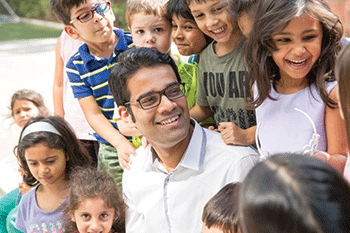 An alumnus of Mumbai and NMIMS universities, Aditya Patil worked with J.P. Morgan and the Sangli-based Garden Court Group of companies before committing himself full-time to promoting and developing the Ascend International School (AIS), Mumbai (estb.2012). Currently, Patil is the founder-CEO of AIS promoted under the aegis of the Kasegaon Education Society, which runs 46 education institutions in Maharashtra with an aggregate enrolment of 26,000 students.
An alumnus of Mumbai and NMIMS universities, Aditya Patil worked with J.P. Morgan and the Sangli-based Garden Court Group of companies before committing himself full-time to promoting and developing the Ascend International School (AIS), Mumbai (estb.2012). Currently, Patil is the founder-CEO of AIS promoted under the aegis of the Kasegaon Education Society, which runs 46 education institutions in Maharashtra with an aggregate enrolment of 26,000 students.
Choosing a career in education. My unsatisfactory rote-learning schooling experience and passion to provide children joyful learning experiences persuaded me to join the family vocation.
Prime objectives of AIS. To create a community of self-driven learners in love with the process of learning. If we are able to inculcate joy of learning in our students, they will thrive in any setting or environment.
Major initiatives. One of our path-breaking initiatives is incorporation of project-based learning into the IB framework. The PBL education model creates authentic learning experiences that enable concepts to stick in students’ minds for their entire lives.
Optimistic/pessimistic about Indian education? Optimistic. I believe Indian education is changing slowly but surely. Schools like AIS are disrupting traditional teaching-learning models and prompting parents and teachers to look at education from a new and different perspective. This is a big first step forward towards reforming the system.
Future plans. We want to infuse the education model AIS has developed into all our schools in rural Maharashtra, and ultimately share it with all schools looking to prepare learners of tomorrow.
Leadership style. I believe in leading by example and empowering team members to take decisions. As a leader, my job is to solve the problems of my teachers and admin staff, not to micro-manage them.
Leisure pursuits. Playing squash, running, reading.
Rohit Bhat
Children’s Academy Group, Mumbai
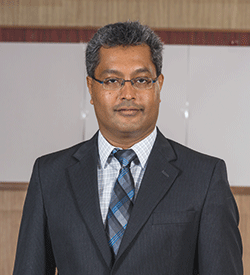 An education postgrad of Mumbai University, Rohit Bhat is CEO of the Children’s Academy Group of three CISCE-affiliated schools in Mumbai with an aggregate enrolment of 9,500 students.
An education postgrad of Mumbai University, Rohit Bhat is CEO of the Children’s Academy Group of three CISCE-affiliated schools in Mumbai with an aggregate enrolment of 9,500 students.
Education career choice. I grew up surrounded by educationists. My father started Children’s Academy in a small way in 1970. As I grew, Children’s Academy was also growing from strength to strength and all table talk revolved around the school. Raised in this environment I automatically learned a lot about education. So when the time came to choose a career, the choice was clear.
The prime objective of Children’s Academy Group. To deliver quality education at affordable prices. In fact for the past two years, EducationWorld has ranked us #1 nationwide for value for money in the EW India School Rankings.
Major initiatives. I am in charge of academics and have ensured that curriculums across all our schools are contemporary and standardised. We have achieved this by constantly updating our pedagogies and keeping our teachers — our greatest assets — abreast with new classroom delivery techniques and technologies.
Optimistic or pessimistic about Indian education? Optimistic. Parents across the country are ready and willing to invest in high-quality education and respect for quality education is spreading. But at the same time, deteriorating standards of public education is depressing.
Future plans. Cautious expansion is our development mantra. We want to start our fourth school soon, but only if we are able to guarantee quality education at affordable price.
Leadership style. Participative. I welcome inputs from team members, and make the final decision after hearing all viewpoints. In staff rooms too, I encourage our principals to solicit the opinions of teachers.
Leisure activities. Reading and watching movies.
Puneet Kothapa
Narayana Group, Hyderabad
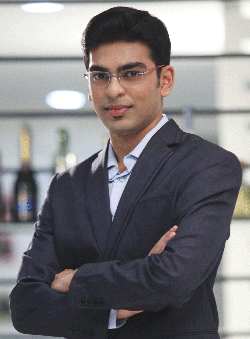 A chartered accountant who acquired five years of work experience in Ernst & Young, the well-known global consultancy, Puneet Kothapa is the Hyderabad-based executive director of the Narayana Group of Educational Institutions which comprise 450 primary-secondary schools, junior colleges, a medical and dental college and two engineering and nursing colleges with an aggregate enrolment of 350,000 students and 13,000 faculty in 11 states countrywide.
A chartered accountant who acquired five years of work experience in Ernst & Young, the well-known global consultancy, Puneet Kothapa is the Hyderabad-based executive director of the Narayana Group of Educational Institutions which comprise 450 primary-secondary schools, junior colleges, a medical and dental college and two engineering and nursing colleges with an aggregate enrolment of 350,000 students and 13,000 faculty in 11 states countrywide.
Education as a career choice. I was always interested in education which shapes societies and countries. Children are moulded by what they learn in school and they will ultimately shape India’s future. I am happy I have a small but meaningful role to play in steering the future of our country through them.
Prime objectives of Narayana Group. To prepare students for the intense competition they will face as they grow up, to equip them with the skills, attitude and tenacity to overcome obstacles and to nurture global citizens with compassion and empathy.
Major initiatives. Over the past five years, the Narayana Group has successfully expanded its footprint in five additional states of the country and our aggregate student enrolment has grown from 175,000 to 350,000. During this growth phase, we have identified and trained talented teachers and academics, introduced curriculum changes and intensified use of digital technologies in teaching-learning.
Optimistic or pessimistic about Indian education? Optimistic, though I believe Indian education has a long way to go to meet global standards. This challenge provides an opportunity for education leaders to initiate change. The government has a key role to play in encouraging innovation in education and providing a regulatory framework which promotes access for all to quality education.
Future plans. We will continue to expand our network to new territories and accelerate use of digital technologies. I believe the Narayana Group with its vast network of 13,000 teachers is in a unique position to contribute to the growth and development of Indian education.
Leadership style. Democratic accountability. I believe teachers and administrators perform best when given freedom with responsibility.
Unwinding/de-stressing. My wife Sindhura and I escape on short weekend trips every quarter. I am also a huge sports buff and follow cricket and FC Barcelona.
Siddharth Singh
Emerald Heights International, Indore
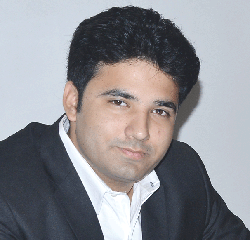 An alum of Stony Brook University, New York, Siddharth Singh is the youthful principal of the CBSE (Delhi) and CIE (UK)-affiliated Emerald Heights International School, Indore (EHIS, estb.1982) which has 4,000 students and 250 teachers on its muster rolls.
An alum of Stony Brook University, New York, Siddharth Singh is the youthful principal of the CBSE (Delhi) and CIE (UK)-affiliated Emerald Heights International School, Indore (EHIS, estb.1982) which has 4,000 students and 250 teachers on its muster rolls.
Why a career in education? I entered the education sector by accident. My parents had started EHIS in our ancestral house 35 years ago. After I returned to India, I interned in the school while looking for a job and suddenly realised I loved teaching. Obviously, education was in my DNA. Six years later, I’m more than satisfied and happy about my decision to stay put.
The prime mission of Emerald Heights. To provide comprehensive education to students. To enable children to succeed in the hi-tech, competitive 21st-century world, schools have to focus on nurturing their multiple intelligences and cognitive development.
Major initiatives you have taken after assuming charge of EHIS. I believe my major contribution has been to introduce the school to internationalism, career counselling and college placements. EHIS is connected with prestigious international organisations such as Round Square, AFS, Global Connections, British Council, College Board and IAYP. On the placements front, EHIS is the first school in central India to introduce curriculums to enable students to win scholarships to Stanford, New York and Pennsylvania universities.
Are you optimistic or pessimistic about Indian education? A bit of both. Excessive government intervention and regulations have blighted the future of education in India. I firmly believe that privatisation and free markets are necessary for sustained economic growth. If the government relaxes its regulatory policies, thousands of high-quality affordable schools will mushroom countrywide.
Future plans. We are looking to introduce more vocational training programmes and a hobby centre. We are also in the process of building an Adventure Park to provide life skills training.
Leadership style. A mix of team and strategic leadership. All school heads have to be strategic thinkers. We have to steer our schools in the right direction.
Leisure activities. Travelling, movies, tennis.
Harsh Kapadia
H.B. Kapadia Group of Schools, Ahmedabad
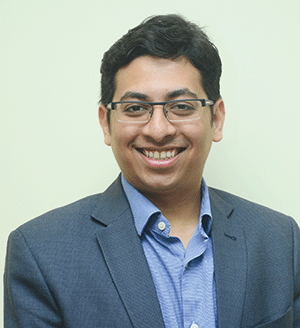 An alum of Harvard University and chartered accountant, Harsh Kapadia is trustee of the Ahmedabad-based H.B. Kapadia Group (estb.1956) which has promoted nine schools with an enrolment of 15,000 students in the textiles city.
An alum of Harvard University and chartered accountant, Harsh Kapadia is trustee of the Ahmedabad-based H.B. Kapadia Group (estb.1956) which has promoted nine schools with an enrolment of 15,000 students in the textiles city.
Education as a career. For the past nine decades, my family has been running schools to deliver high quality, holistic education. I always wanted to continue this tradition which also gives me an opportunity to actively contribute to nation-building.
The mission of the H.B. Kapadia Group of Schools. We are focused on making our students future-proof by equipping them with the education and skills required to manage, adapt and thrive in an increasingly complex world.
Major initiatives. Since I was appointed trustee in 2013, my focus has been on reinventing the way we teach and enable children to learn. We have promoted a model 21st century preschool — 9 Kids — in which children learn experientially, and are given individual attention in a carefully designed learning environment in the form of nine dedicated learning spaces. We have received excellent feedback from parents, and have won several awards which are endorsements that we are moving in the right direction.
Optimistic/pessimistic about Indian education? A growing number of private schools, education companies and government bodies are investing time and effort to effect far-reaching changes in Indian education. However, to make a real difference, the country needs a clear roadmap charted by the Central government. Therefore, I am cautiously optimistic but we all need to come together.
Future plans. To make children future-ready, we are developing programmes related to coding, big data, digital literacy, cultural understanding, and social/emotional education which can be offered during or after school hours.
Leadership style. I believe in inclusive management, getting the best out of people by giving them opportunities to succeed and backing them, even if they fail.
Leisure activities. I follow a spiritual path which helps me to stay focused, maintain balance and keep a clear mind.
Anjum Babukhan
Glendale Academy, Hyderabad
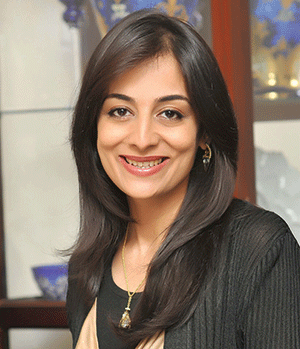 A psychology graduate of Loyola University, Chicago with a postgrad degree in educational administration and instructional leadership from the University of Illinois, Anjum Babukhan is co-founder and director of the CBSE and CIE, UK-affiliated K-12 Glendale Academy (estb.2003), Glendale Edufun chain of seven preschools and the Glendale Creative Arts Academy, all in Hyderabad. Aggregate enrolment: 2,470 students.
A psychology graduate of Loyola University, Chicago with a postgrad degree in educational administration and instructional leadership from the University of Illinois, Anjum Babukhan is co-founder and director of the CBSE and CIE, UK-affiliated K-12 Glendale Academy (estb.2003), Glendale Edufun chain of seven preschools and the Glendale Creative Arts Academy, all in Hyderabad. Aggregate enrolment: 2,470 students.
Choosing a career in education. I always wanted to do something meaningful which made a real difference to people’s lives. I got the opportunity to work in education thanks to my husband and in-laws who encouraged me to promote the Glendale Academy and associated institutions after I returned from the US.
Prime objectives of Glendale Academy. Our main focus is on developing students’ multiple intelligences and delivering brain-compatible learning (BCL). Our school motto is ‘Learning every day, loving every minute’.
Major initiatives. We have developed deeply researched child-centred curriculums, BCL pedagogy, provided art and music studios, landscaped gardens, adventure playground, corners signposted with encouraging messages, and promoted Indian culture through yoga, classical music and dance forms.
Optimistic/pessimistic about Indian education? In India, too many parents believe in traditional teaching and regard co-curricular and sports education as distractions. Fortunately, these attitudes are changing.
Future plans. We will improve our BCL pedagogy by continuously researching contemporary neuroscience studies.
Leadership style. I love to learn and continue to sign up for courses on education and leadership every few months. I also regularly attend national and international education conferences.
Leisure pursuits. Maintaining a scrapbook, art, meditation and reading.
Vinay Jain
Witty Group of Institutions, Mumbai
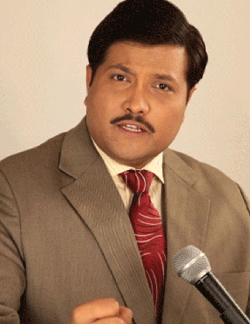 Vinay Jain is promoter of the Witty Group of Institutions (estb.2001) comprising six schools with an aggregate enrolment of 14,980 students in Mumbai. Jain is also CEO and managing director of VJTF Eduservices Pvt. Ltd, an education consultancy, and a much sought-after motivational speaker and trainer who has conducted over 450 seminars for 500,000 parents countrywide.
Vinay Jain is promoter of the Witty Group of Institutions (estb.2001) comprising six schools with an aggregate enrolment of 14,980 students in Mumbai. Jain is also CEO and managing director of VJTF Eduservices Pvt. Ltd, an education consultancy, and a much sought-after motivational speaker and trainer who has conducted over 450 seminars for 500,000 parents countrywide.
Choosing a career in education. As a trainer and firm believer in developing human capital, I have always supported informal rather than formal curriculums-based education. This was the best way to implement my education philosophy, thoughts and concepts.
Mission of Witty Group. To promote academic excellence and enable children to realise their cognitive, social, emotional and physical potential. We want to develop students who are “caring communicators, knowledgeable inquirers, open-minded, principled reflective thinkers, and risk-takers who will always be on top of the world”.
Major initiatives. A thoroughly researched curriculum, continuous innovation in teaching-learning systems, infrastructure to boost learning outcomes — reading lounges, latest IT facilities, wi-fi campus, e-reading and I-pad labs. Also, innovative student development initiatives such as enrichment hour, motivation classes, finishing school and language development programmes.
Optimistic/pessimistic about Indian education? Both. Optimistic because the pace of global change is forcing us to deliver contemporary, internationally benchmarked education. However, education needs to get the status of a ‘meta resource’ with adequate funding to positively impact literacy, skills development and employability. But the money allocated by the government will never be sufficient and private educators are not being encouraged to invest in education.
Future plans. To promote more schools and make Witty one of India’s leading school chains renowned for quality education and academic excellence. However, we are not in a hurry to add numbers but will prioritise on equipping our schools with best infrastructure, co-curricular and sports education facilities.
Leadership style. Participatory. We have an open door policy for our staff.
Leisure pursuits. Spending quality time with my family, writing.
Harsh Madhok
Sunbeam Group, Varanasi
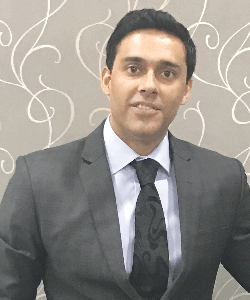 An alumnus of Australia’s Monash and Central Queensland universities, Harsh Madhok is business development manager of the Varanasi-based Sunbeam Group of educational institutions. Thus far, the group has promoted six CBSE-affiliated K-12 and 14 associate schools and two women’s colleges with an aggregate enrolment of 24,000 students and 4,000 employees in tier-2 and 3 cities of eastern Uttar Pradesh.
An alumnus of Australia’s Monash and Central Queensland universities, Harsh Madhok is business development manager of the Varanasi-based Sunbeam Group of educational institutions. Thus far, the group has promoted six CBSE-affiliated K-12 and 14 associate schools and two women’s colleges with an aggregate enrolment of 24,000 students and 4,000 employees in tier-2 and 3 cities of eastern Uttar Pradesh.
A career in education. I didn’t choose this profession, it chose me. I believe learning is about reflecting upon past experiences, drawing conclusions on how to improve and moving forward. I am continuously learning.
Prime objectives of Sunbeam Group. To empower students of the new millennium to take responsibility for their future and become self-directed learners and leaders.
Major initiatives. My single biggest achievement is the promotion of Sunbeam Eduserve, the educational consultancy arm of the Sunbeam Group which now manages 14 associate/franchised schools across Uttar Pradesh.
Optimistic/pessimistic about Indian education? On one hand, I’m optimistic as globalisation and Internet access have facilitated connectivity, communication and transfer of knowledge. On the other hand, I am concerned about increased government interference and regulations steadily diluting the autonomy of private education institutions.
Future plans. To introduce the IB curriculum in Sunbeam schools and expand the group’s reach to tier 3 and 4 towns of Uttar Pradesh, Bihar and Madhya Pradesh.
Leadership style. A mix of control and delegation.
Leisure activities. Gymming, running, listening to music and reading non-fiction.
Mir Hafeezuddin Ahmed
Nasr Education Society, Hyderabad
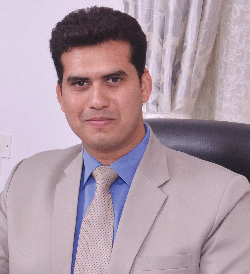 A mass communication graduate of Osmania University with a postgrad degree in media arts from University of Greenwich, London, Mir Hafeezuddin Ahmed signed up with Nasr School, Hyderabad as an equestrian instructor in 2005. Four years later, he took a sabbatical to read for his Masters in the UK. On his return to India in 2011, he was appointed CEO of the Nasr Education Society (estb. 1965) which manages the K-12 Nasr Boys and Nasr Girls schools, and two pre-primaries with an aggregate enrolment of 4,500 students, all in Hyderabad. In 2014, he was appointed principal of Nasr Boys.
A mass communication graduate of Osmania University with a postgrad degree in media arts from University of Greenwich, London, Mir Hafeezuddin Ahmed signed up with Nasr School, Hyderabad as an equestrian instructor in 2005. Four years later, he took a sabbatical to read for his Masters in the UK. On his return to India in 2011, he was appointed CEO of the Nasr Education Society (estb. 1965) which manages the K-12 Nasr Boys and Nasr Girls schools, and two pre-primaries with an aggregate enrolment of 4,500 students, all in Hyderabad. In 2014, he was appointed principal of Nasr Boys.
Education career choice. I always admired my teachers and the fact that everyone looked upto them. I was also excited by the challenge of taking responsibility of grooming and developing future leaders.
Nasr mission and objectives. The Nasr School was started by Begum Anees Khan in 1965 when she couldn’t find a good enough school for her daughters. Since then, the prime objective of all our schools is to provide holistic education to our students. We believe in traditional pedagogies without over-emphasis of new technologies, but with a 21st century perspective.
Recent initiatives. Going global is very important for Nasr. Our students have proven themselves in India, so my goal is to help our students excel internationally.
Optimistic or pessimistic about Indian education? Indian education is deep-rooted and well-researched. Hence optimistic.
Future plans. As Nasr completes 50 years, we believe we have developed models which need to reach a larger audience of students in India and overseas.
Leadership style. I am a good listener. It’s more important to listen than be heard.
Leisure pursuits. I play polo, which is the best stressbuster. Our latest addition to the Nasr Group is a dedicated horse riding and polo academy in Hyderabad — Nasr Polo.
Harinder Mann
Doon International Schools, Dehradun
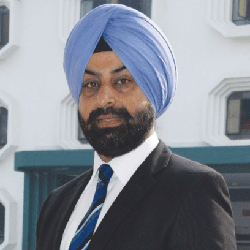 Harinder Mann is director of the Doon International Group of schools comprising two CBSE-affiliated day-cum-boarding schools in Dehradun (estb. 1993 and 2004) and one in Mohali (2015) with an aggregate enrolment of 6,000 students. An English and law graduate of Delhi University and HNB University (Uttarakhand), Mann began his career in the Taj Group of Hotels before proceeding to complete an MBA degree programme from the University of Queensland, Australia. In 1999, he returned to India to take charge of the family-promoted Doon International School (DIS), Dehradun.
Harinder Mann is director of the Doon International Group of schools comprising two CBSE-affiliated day-cum-boarding schools in Dehradun (estb. 1993 and 2004) and one in Mohali (2015) with an aggregate enrolment of 6,000 students. An English and law graduate of Delhi University and HNB University (Uttarakhand), Mann began his career in the Taj Group of Hotels before proceeding to complete an MBA degree programme from the University of Queensland, Australia. In 1999, he returned to India to take charge of the family-promoted Doon International School (DIS), Dehradun.
Why a career in education? After a brief corporate stint, I realised my calling lay elsewhere. Despite the option of working and living in Australia after my MBA, I chose to return and work with my parents who had set up our first school in Dehradun in 1993. I was drawn towards the challenge of developing and improving it to compete with the best schools of north India.
Prime objectives of Doon International Group of Schools? To provide affordable education while maintaining high standards and to groom young boys and girls to become responsible, independent, capable, confident and well-rounded individuals ready to rise to leadership positions in society.
What are the major initiatives you have taken after assuming charge of DIS? I’ve introduced a corporate work culture with special emphasis on performance and accountability and promoted DIS campuses in Dehradun and Mohali. A series of welfare measures for teachers and employees has resulted in low employee attrition.
Are you optimistic about Indian education?Very optimistic. Indian private schools, especially new-age ones, compare favourably with the best in the world. The government must fall in line with Supreme Court judgements which permit establishment of for-profit schools with appropriate checks and balances. Moreover, affiliating exam boards such as CBSE and CISCE also need to refrain from imposing excessive controls which hurt the autonomy and growth of private schools.
What are the future plans for the group? We have been thinking in terms of pan-India expansion. However, regressive government policies targeting private schools have made us rethink our expansion plans.
How would you describe your leadership style? I would call it a mix of strategic, team building and facilitative leadership.
How do you unwind/de-stress? I love to travel, enjoy listening to music and socialising with friends.
Ayush Periwal
Jayshree Periwal International, Jaipur
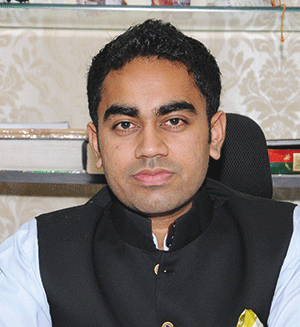 A business management graduate of Babson University, USA, Ayush Periwal (29) returned to India in 2010 and was appointed director of business development of the family-promoted Jayshree Periwal International School (JPIS, estb. 2011), Jaipur. Promoted in 2000 by well-known educationist Jayshree Periwal, the JPIS group comprises a full-fledged CIE, UK and IBO, Geneva-affiliated K-12 international school, a CBSE school and four preschools with an aggregate enrolment of 8,145 students in the pink city.
A business management graduate of Babson University, USA, Ayush Periwal (29) returned to India in 2010 and was appointed director of business development of the family-promoted Jayshree Periwal International School (JPIS, estb. 2011), Jaipur. Promoted in 2000 by well-known educationist Jayshree Periwal, the JPIS group comprises a full-fledged CIE, UK and IBO, Geneva-affiliated K-12 international school, a CBSE school and four preschools with an aggregate enrolment of 8,145 students in the pink city.
Why did you choose a career in education? Education is the perfect fit for me as it enables me to contribute to the country’s economic development. When I was studying at Babson, I made friends with very intelligent undergrads who had studied in IB schools. Their knowledge and ideas inspired me to introduce the IB curriculum in Rajasthan to help students learn experientially and develop critical thinking and problem-solving skills.
What is the prime objective of JPIS? Our school’s mission is to graduate well-educated, lifelong self-learners equipped with the values of honesty, integrity, loyalty and compassion.
What are the major initiatives you have undertaken at JPIS? A major initiative is to help our schools connect with institutions abroad. To this end, I engineered an exclusive arrangement with Stanford University to host their summer programmes at JPIS. Further, it’s my mission to guide and enable our class XII students to choose universities and study programmes which best fit their aptitudes and talent. Currently, our students are studying at the world’s top universities. Last year, our students received scholarships/financial aid valued at Rs.39.9 crore from top-ranked universities.
Optimistic/pessimistic about Indian education? India is gifted with the world’s largest young population that is diligent and hard working. The tragedy is our education system and curriculums don’t develop children’s creativity and cognitive growth. But I am optimistic that as educationists,we can remedy this situation.
Future plans. We want to enter the higher education sector and develop excellent liberal arts pedagogies in India. I want to reverse the flow of students in search of higher education from India to the West.
Leadership style. I believe in a democratic leadership style. I have grown up witnessing my mother Dr. Jayshree Periwal lead by example.
Unwind/de-stress. Time with family, watching football and travelling. Adventure sports including scuba diving, fly boarding, bungee jumping and even shark cage diving.
Siddharth Shahani
ISDI & ISME, Mumbai
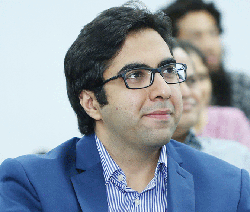 An alum of University College London and the London School of Economics with working experience in McKinsey & Co, Siddharth Shahani is co-founder of the Mumbai-based Indian School of Design & Innovation (ISDI, estb.2013) and Indian School of Management & Entrepreneurship (ISME, 2016). ISDI offers fashion, interior, product and communication design undergrad and postgraduate programmes in collaboration with the New York-based Parsons The New School for Design, while ISME offers business management and entrepreneurship programmes. Together, these institutions have 1,000 students on their muster rolls.
An alum of University College London and the London School of Economics with working experience in McKinsey & Co, Siddharth Shahani is co-founder of the Mumbai-based Indian School of Design & Innovation (ISDI, estb.2013) and Indian School of Management & Entrepreneurship (ISME, 2016). ISDI offers fashion, interior, product and communication design undergrad and postgraduate programmes in collaboration with the New York-based Parsons The New School for Design, while ISME offers business management and entrepreneurship programmes. Together, these institutions have 1,000 students on their muster rolls.
Why a career in education? Genetics and environment. As the son of career academic Indu Shahani, former principal of HR College, Mumbai, I had a ringside view of the challenges of the Indian education system. I felt it incumbent upon me to play the role of a catalyst in improving access and introducing high quality new-age education.
Prime objectives of ISDI and ISME. To transform India by empowering and developing job creators, innovators and positive disruptors.
Major initiatives. Importing world-class curriculums and pedagogies into India; enabling students to learn from industry experts, and improving student and faculty mobility to top-ranked universities worldwide.
Optimistic/pessimistic about Indian education? Very bullish. The opportunity for India to take its place on the global stage has never been better. The government is also moving education higher up on its agenda.
Future plans. ISDI/ISME are not mere institutions of learning but hubs of innovation. Our focus is on building advanced technology labs, entrepreneurship accelerators and immersion centres in which students and faculty can experiment and deliver breakthrough inventions.
Leadership style. We started building these colleges when I was 26 and everyone in the room was older than me. Therefore, my leadership style has been respectful, collaborative and enabling. I firmly believe in nurturing a shared vision and providing platforms for success.
Leisure pursuits. Bollywood movies, dancing and gourmet cuisine.
Sunil Agarwal
Newtown School, Kolkata
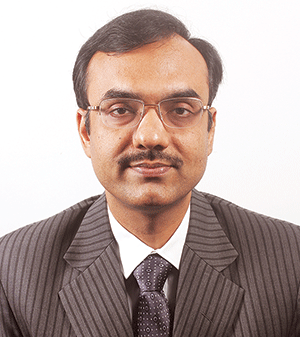 Sunil Agarwal is the founder-director of the mint-new CBSE-affiliated Newtown School, Kolkata (estb.2015). A commerce graduate of Calcutta University and qualified chartered accountant, Agarwal is also promoter-director of Balajee Education Pvt. Ltd (BEPL) which owns the franchisee rights of Aakash Institute (a well-known test prep company, see below) in West Bengal and Bihar. Currently, BEPL manages nine Aakash centres in the two states with an aggregate enrolment of over 14,000 students.
Sunil Agarwal is the founder-director of the mint-new CBSE-affiliated Newtown School, Kolkata (estb.2015). A commerce graduate of Calcutta University and qualified chartered accountant, Agarwal is also promoter-director of Balajee Education Pvt. Ltd (BEPL) which owns the franchisee rights of Aakash Institute (a well-known test prep company, see below) in West Bengal and Bihar. Currently, BEPL manages nine Aakash centres in the two states with an aggregate enrolment of over 14,000 students.
Choosing a career in education. The dearth of quality education and neglect of enabling digital technology in school education prompted me to do my bit to educate and enable our children and youth to compete in the emerging globalised economy.
Prime objectives of the Newtown School. To deliver high-quality education integrated with technology to build a future-ready learning environment, and blend academics with practical knowledge.
Major initiatives. We have invested heavily in technology-enabled teaching-learning pedagogies. This includes providing 3D printing, Ipad, Mac, Itheatre, maths, English and 3D audio-visual labs to encourage experiential learning. We have also digitised school administration, and offer intensive after-school coaching in several sports.
Optimistic/pessimistic about Indian education? There’s a huge demand-supply gap in Indian education. Rising private sector investment and several government initiatives make me optimistic.
Future plans. This year we plan to introduce a Lego robotics lab to improve our STEM education and Video Education Program labs in association with a well-known TV news channel to offer our students film production and journalism education. We are also constructing a new building to accommodate 2,000 additional students.
Leadership style. Building teams ready to experiment, learn and unlearn. It’s very important to empower team members to enable them to give their 100 percent.
Leisure pursuits. The best way to de-stress is to set new goals and objectives.
Nooraine Fazal
Inventure Academy, Bangalore
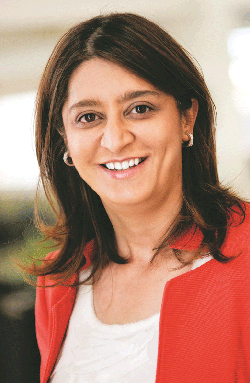 A commerce and business management alumna of Mount Carmel College, Bangalore and Boston University, Nooraine Fazal returned to India after working for 12 years with Reuters and IBM, to promote the K-12 CISCE (Delhi) and CIE (UK)-affiliated Inventure Academy (IA, estb.2005) of which she is the co-founder, CEO and managing trustee. Since 2010, IA has been consistently ranked among India’s top dozen co-ed day schools and among the Top 5 in Karnataka by EducationWorld.
A commerce and business management alumna of Mount Carmel College, Bangalore and Boston University, Nooraine Fazal returned to India after working for 12 years with Reuters and IBM, to promote the K-12 CISCE (Delhi) and CIE (UK)-affiliated Inventure Academy (IA, estb.2005) of which she is the co-founder, CEO and managing trustee. Since 2010, IA has been consistently ranked among India’s top dozen co-ed day schools and among the Top 5 in Karnataka by EducationWorld.
Why the career switch to education? After working abroad for many years, I experienced the urge to contribute towards empowering India’s future citizens with contemporary education designed to develop them into progressive, secular and inclusive adults confident of competing globally.
Prime objectives of Inventure Academy. To develop capability and conviction in all our students to realise their maximum potential, and become socially responsible citizens who can excel anywhere in the world.
Optimistic/pessimistic about Indian education? I have mixed feelings. On the positive side, the desire and ability to pay for 21st century education is very high. On the negative side, the regulatory environment i.e, license raj on steroids, has adversely affected supply, sustainability, quality and access to globally benchmarked education.
Future plans. To establish either one or more K-12 schools in Bangalore and/or abroad; disseminate the IA education philosophy, instruction design process, curriculum, culture, systems and processes countrywide, and promote a graduate school to empower innovation, entrepreneurship and progressive leaders.
How would you describe your leadership style? Progressive. I like to lead by example and develop a shared vision for my team which challenges the status quo.
Unwinding/de-stressing mantra. Yoga, workouts, golf, music and travel in India and abroad.
Aakash Chaudhry
Aakash Institute
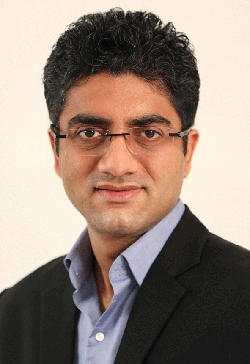 Aakash Chaudhry is the Delhi-based director of Aakash Educational Services Pvt. Ltd (AESPL), which has promoted 160 owned/franchised Aakash Institute test prep/coaching centres countrywide with an aggregate enrolment of 125,000 students. A highly-qualified alum of the Indian School of Business, Hyderabad and Harvard Business School, Boston, Chaudhry also acquired valuable workplace experience with Infosys Technologies and Cognizant Technology Solutions prior to signing up with AESPL in 2006.
Aakash Chaudhry is the Delhi-based director of Aakash Educational Services Pvt. Ltd (AESPL), which has promoted 160 owned/franchised Aakash Institute test prep/coaching centres countrywide with an aggregate enrolment of 125,000 students. A highly-qualified alum of the Indian School of Business, Hyderabad and Harvard Business School, Boston, Chaudhry also acquired valuable workplace experience with Infosys Technologies and Cognizant Technology Solutions prior to signing up with AESPL in 2006.
Choosing a career in education. In 1988, my father promoted Aakash Educational Services on a modest scale to prepare school-leavers to write the entrance exams for admission into the country’s best medical and engineering colleges. I joined Aakash in 2006 to use my education and work experience to scale the company. Since then, we have grown from 22 centres in 2006 to over 160 in 2016 with delivery modes expanded from classrooms to tablets, e-learning and mobile devices.
Prime objectives of AESPL. To provide high quality entrance exams coaching and preparation ensuring brilliant and average students access to the best colleges of professional education. Excellent tuition, pedagogy innovations and effective administration and innovation are the secrets of our success.
Major initiatives. We launched the Aakash-IITJEE brand for engineering entrance exams preparation in 2007 followed by online self-assessment tools, a DVD-based learning programme and the Aakash Foundation in 2009-10. This was followed by Aakash iTutor (2013) pedagogy which enables students to access lectures on a proprietary computer tablet. In 2015, we introduced the Aakash iTutor mobile app and the Aakash Live online programme last year. Moreover, we have digitised all our content to make it available at all our centres through our iTutor Labs.
Optimistic/pessimistic about Indian education? The Indian education system is witnessing sea change and I believe it’s poised for tremendous growth driven by digitisation and e-learning, which will make high-quality education accessible and affordable to all.
Future plans. We want to establish Aakash centres in tier-II and III cities through a blended model of bricks-n-mortar and technology-enabled classrooms.
Leadership style. Transformational. I empower team members and work with them to drive organisational change.
Leisure pursuits. Spending time with my children, listening to pop music, travelling and biking.
Niyati Chitkara
Chitkara International School, Chandigarh
 An education and business management alumna of Panjab University, Dr. Niyati Chitkara is principal of the CBSE-affiliated Chitkara International School (CIS), Chandigarh. Promoted by the Chitkara Educational Trust, which has also established the Chitkara University, CIS has an enrolment of 1,759 students and 74 teachers on its muster rolls.
An education and business management alumna of Panjab University, Dr. Niyati Chitkara is principal of the CBSE-affiliated Chitkara International School (CIS), Chandigarh. Promoted by the Chitkara Educational Trust, which has also established the Chitkara University, CIS has an enrolment of 1,759 students and 74 teachers on its muster rolls.
Choice of education as a vocation. I was born on Teachers’ Day, and married into the family of Dr. Madhu and Dr. Ashok Chitkara, founders of Chitkara University. So education became a natural career choice.
Prime objectives of Chitkara International School. “We will take a hand, open a mind, touch a heart and shape a future.” That’s the promise of CIS. We believe we have developed a school curriculum which encourages innovation and research, and provides our students strong industry and global connections.
Major initiatives undertaken after assuming charge of CIS. One of our major accomplishments is a new process for student assessment which takes every attribute and learning milestone of each student into consideration. Moreover, by working closely with Chitkara University, we have prepared a curriculum that grooms students for tertiary education, future employment and entrepreneurship.
Optimistic/pessimistic about Indian education? A favourable development is that the Indian education system has realised that change is permanent and innovation and research are part and parcel of education. This makes me optimistic.
Future plans for CIS. To strengthen the school’s links with community and industry and improve the global connect of our students.
How would you describe your leadership style? A blend of authoritarianism, democracy and delegation.
Leisure and de-stressing. To dress impeccably every day because I feel when you dress good, you feel good. Exercise and visits to schools abroad.
Ankur Pansari
Royal Group of Institutions, Guwahati
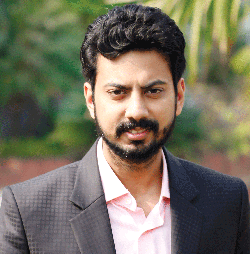 Ankur Pansari is the can-do executive vice president of the Guwahati-based Royal Group of Institutions (RGI) which comprise the Delhi Public School, Guwahati (estb. 2003), an engineering/business management college (2009) and the CBSE-affiliated Royal Global School (2012) with an aggregate enrolment of 7,000 students. An alumnus of Christ University, Bangalore and NMIMS, Mumbai, Pansari has played a lead role in rolling out the family’s mint-new Royal Global University.
Ankur Pansari is the can-do executive vice president of the Guwahati-based Royal Group of Institutions (RGI) which comprise the Delhi Public School, Guwahati (estb. 2003), an engineering/business management college (2009) and the CBSE-affiliated Royal Global School (2012) with an aggregate enrolment of 7,000 students. An alumnus of Christ University, Bangalore and NMIMS, Mumbai, Pansari has played a lead role in rolling out the family’s mint-new Royal Global University.
Why a career in education? Choosing a career in education was natural for me as it runs in my blood. I believe if you give a fish to a person you can feed him for a day but if you teach him fishing, you enable him for a lifetime.
Prime objectives of Royal Global University. Our mission is to keep pace with unprecedented change through innovatively designed, research-intensive, industry-connected education and produce responsible business, industry and community leaders. Royal Global University will provide students of the neglected north-east region access to high-quality education and enable them to become globally employable.
What major initiatives have you undertaken at RGI? The Royal Group of Institutions was conferred university status by the Assam Royal Global University Act, 2013, enacted by the state legislative assembly. We will welcome our first batch of students in June this year. Recently, we initiated RiverTalks — one of the biggest literary fests of the north-east — and also instituted our Pride of North East awards.
Optimistic/pessimistic about Indian education? I believe there’s nothing inherently wrong with Indian education. All we need to do is to improve quality through better infrastructure, experienced and qualified teachers, accreditations, ensure access and avoid over-commercialisation of the education system.
Leadership style. I believe in a consultative and participative style of leadership. I am a team player and happy when all team members participate equally, enthusiastically and creatively to achieve targets.
Future plans. Now that RGI has been conferred university status, my focus is on introducing contemporary courses to enhance employability of our students.
Unwind/de-stress. I relax by listening to music and spending time with family.
Shubhalakshmi Amin
Navrachana Group, Vadodara
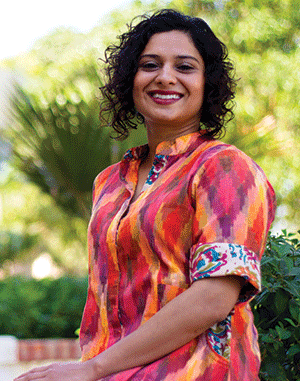 An engineering graduate of the University of Illinois at Urbana-Champaign with an MBA from INSEAD, Singapore/France, Shubhalakshmi Amin began her career as program manager with Microsoft Corp followed by a stint as general manager of Jyoti Ltd, Vadodara. In 2016, she quit her corporate career to take charge as executive director of the family-run Navrachana Education Society (NES), Vadodara which has promoted nine education institutions including seven schools and the Navrachana University. Aggregate enrolment: 10,000 students.
An engineering graduate of the University of Illinois at Urbana-Champaign with an MBA from INSEAD, Singapore/France, Shubhalakshmi Amin began her career as program manager with Microsoft Corp followed by a stint as general manager of Jyoti Ltd, Vadodara. In 2016, she quit her corporate career to take charge as executive director of the family-run Navrachana Education Society (NES), Vadodara which has promoted nine education institutions including seven schools and the Navrachana University. Aggregate enrolment: 10,000 students.
Choosing a career in education. It happened by chance. My grandmother founded NES over 50 years ago, which my mother has been managing for the past 30 years. Ultimately, this is where I’ve found my calling. We are on the brink of a revolution in schooling, and I want to be at the forefront of this revolution.
The prime objectives of Navrachana Group. To work towards developing happy, healthy and wholesome human beings. Our institutional focus is on total development of every child — moral, intellectual, social, emotional, physical and spiritual.
Major initiatives. I have been in NES full-time for only two years. During this period, I have undertaken an exercise to map the competencies of all our teachers and create a directory of talent for use across our institutions. I have also successfully introduced technology-aided learning and an MIS reporting system.
Optimistic or pessimistic about Indian education? Neither. There are immense possibilities but I am a realist and aware of the restrictions and regulations that weigh heavily on this sector. We have to learn to innovate, evolve and find ways to deal with these challenges.
Future plans. The future is in the digital space, so Navrachana institutions will grow by increasingly engaging with technology. But we also plan to promote bricks-and-mortar schools in other geographical locations.
Leadership style. Informal and democratic. I am action and results-oriented, and give people the freedom to do things their way. Micro-management is not my thing.
Unwind/de-stress. Nothing de-stresses me like being in the kitchen and cooking a delicious, nutrition-packed meal.
Robin Aggarwal
Learning Paths School, Mohali
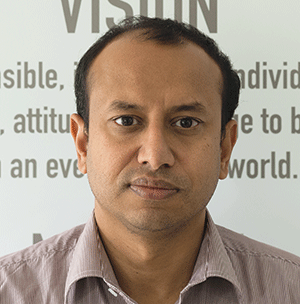 Robin Aggarwal is director of the CBSE-affiliated Learning Paths School, Mohali (Punjab). A law graduate of Panjab University, Chandigarh with an MBA from Boston University, Aggarwal worked with Boston Scientific India before co-founding Learning Paths School in 2008. Currently, the school has 1,361 students and 90 teachers on its rolls.
Robin Aggarwal is director of the CBSE-affiliated Learning Paths School, Mohali (Punjab). A law graduate of Panjab University, Chandigarh with an MBA from Boston University, Aggarwal worked with Boston Scientific India before co-founding Learning Paths School in 2008. Currently, the school has 1,361 students and 90 teachers on its rolls.
Choosing a career in education. Education is the most important building block of national development with education institutions invested with the power to change and improve the world for the better. I want to be involved in this noble endeavour.
Prime objectives of Learning Paths School. We don’t merely instruct students but guide them along paths of learning towards success. The school’s name — Learning Paths — captures this objective perfectly.
Recent major initiatives. Recently, we introduced our commerce and humanities programmes under our AGILE framework. This is a first-of-its-kind programme for providing industry-connected personalised commerce and humanities education to class XI-XII students. We have also initiated several community service and social engagement programmes in association with Rotary, TERI and Yuvsatta among other NGOs, and developed contemporary programmes in entrepreneurship, STEM and business management.
Optimistic/pessimistic about Indian education? Definitely optimistic. However, there are dark clouds of excessive regulation of private education in our country. The government needs to liberalise the education sector, increase investment in teacher training and reform the rote-centric examination system.
Future plans. Introduce vocational, life skills, leadership, conflict resolution and mediation programmes to enable students to lead successful lives.
Leadership style. Vision and passion for job completion are very important. Add to that conviction and courage to take on big challenges.
Leisure pursuits. Sports, especially running and tennis, and spending time with family and friends.
Renita Handa
Redbricks Education, Ahmedabad
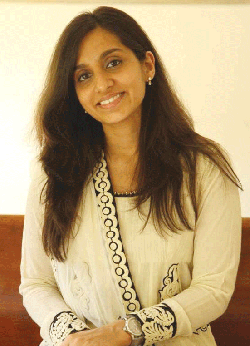 In 2009, Renita Handa (together with husband Aditya) registered the Redbricks Education Foundation in Ahmedabad to “design a school education system where children and teachers learn how to learn”. Over the past eight years, this 32-year-old alumna of St. Xavier’s College, Ahmedabad and Bentley University, USA, has spearheaded the promotion of Redbricks Junior (ranked Ahmedabad’s #1 pre-primary in the EW India Preschool Rankings 2016), the CISCE-affiliated K-12 Redbricks School and Redbricks Teachers Institute.
In 2009, Renita Handa (together with husband Aditya) registered the Redbricks Education Foundation in Ahmedabad to “design a school education system where children and teachers learn how to learn”. Over the past eight years, this 32-year-old alumna of St. Xavier’s College, Ahmedabad and Bentley University, USA, has spearheaded the promotion of Redbricks Junior (ranked Ahmedabad’s #1 pre-primary in the EW India Preschool Rankings 2016), the CISCE-affiliated K-12 Redbricks School and Redbricks Teachers Institute.
Why a career in education? Having worked with children from young age, I realised that the best way to contribute to society is by investing my energy and education in children.
Prime objectives of Redbricks Group of schools. Our prime objective is to design a K-12 education system in which children and teachers learn how to learn and develop life and cognitive skills to succeed in real life. This objective is in the context of our larger mission to contribute towards nation building.
Major initiatives. My focus has always been on innovations in teaching and quality learning. Some of the initiatives include developing a robust school curriculum and pedagogies which strike a balance between experiential learning and academic rigour, developing teacher training programmes in early childhood care and education and designing primary education curriculums.
Are you optimistic/pessimistic about Indian education? I am largely optimistic. I believe we have a large talent pool of teachers with great potential if given proper training. Moreover, if we can engineer a synergistic relationship between public and private schools, it will sharply improve learning outcomes. But, the regulation of private education institutions needs a rethink.
Future plans. We want to scale up without diluting quality through better management systems, and greater investment in teacher and parent education programmes. In the long term, we want to replicate our school model across Gujarat and enter the higher education space.
How would you describe your leadership style? I am very organised and details-oriented. Therefore, I believe in setting high benchmarks for excellence and encouraging my team to pursue agreed goals with vigour and dedication.
How do you unwind/de-stress? Through regular exercise and reading, spending quality time with family and travelling.
Also read: 30 Eduleaders weathering covid tsunami























